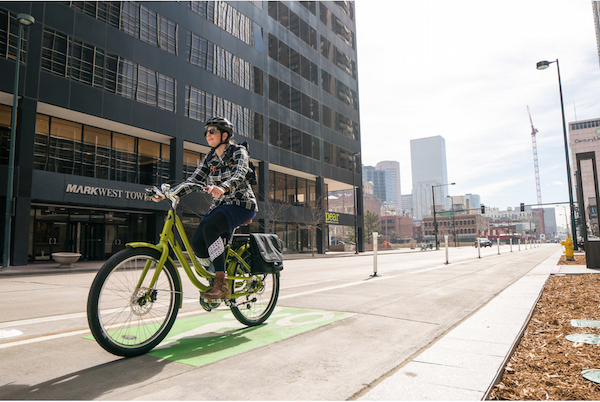President Trump's escalating trade war with China poses a threat to the burgeoning use of e-bikes in the U.S.
The next round of tariffs from the White House takes aim at Chinese manufacturers of e-bikes and e-bike motors, which are on a list of hundreds of products that could be subject to a 25 percent impost tax. The U.S. Trade Representative will finalize the items that the tariff applies to in the months ahead.
The tariff could put a damper on the growth of e-bike adoption in the U.S. and disrupt the livelihoods of delivery workers who depend on them.
For instance, most of the e-bikes available for under $1,000 in New York, where delivery workers often have to pay for their own bicycles, are made in China, Bicycle Retailer reports. The effect on the retail price of the bikes is expected to be three times the size of the tariff itself.
Bike-share operators are also alarmed. The companies are planning a big expansion of e-bikes in their fleets, but a 25 percent tariff may curtail those plans, says Samatha Herr, executive director of the North American Bike Share Association.
Currently there are only about 4,000 e-bikes in bike-share systems around the U.S., but that number is expected to dramatically rise in the coming months. "2018 is the year of the e-bike share revolution," said Herr. "Everyone’s got an e-bike model."
NABSA's research shows that people are willing to walk farther to get a bike with electric pedal assist than one without. And they ride them longer distances.
E-bikes can make biking more accessible to older people or others who hesitate to give cycling a try. "One of the barriers to biking is a real, or perceived, limitation in ability," said Herr. "Pedal assist e-bikes give riders a little boost while they pedal."
They also address make cycling more appealing for people who don't want to sweat through their clothes. "There’s certain attire for work, they can’t necessarily sweat up that hill," she said. "An e-bike allows you to get where you need to go without building up sweat."
NABSA wrote to the trade commission last month opposing the tariffs. People for Bikes, an advocacy organization funded by the bike industry, has also been working against the tariffs.






